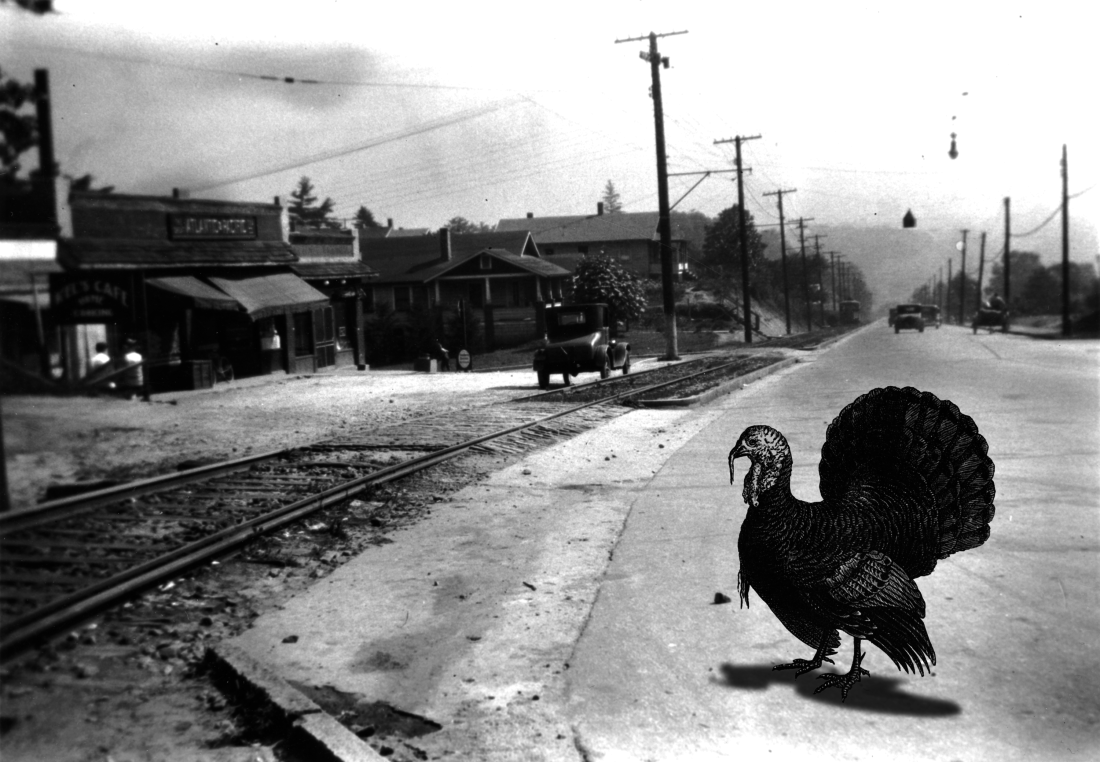A year after the 1929 stock market crash, an editorial in The Asheville Citizen‘s Nov. 27, 1930, edition reflected on the country’s troubled times amid the season of giving thanks.
The piece began:
“Prayer is an attitude. Thanksgiving is a mood. There are times when the heart sings with joy. There are times when it is bowed down with anxiety as well as with sorrow. These are anxious days through which we are passing. We can not blind ourselves to the confusion which exists in almost every part of the world. We can not blind ourselves to the suffering which is so general in our own land — suffering that is harder to bear because to most of those who are enduring it the experience is unfamiliar. We can not blind ourselves in this community to the troubles which have descended upon us as a community, troubles which are leaving in their wake problems of the gravest character the solution of which is still to be provided.”
Asheville’s unemployment rate stood at an estimated 5.6% that winter, with 1,500 of the city’s roughly 26,600 active labor force out of work. But as previous “Asheville Archives” note, both individuals and local institutions soon came together to address the ongoing struggle that many in the community faced. (For a list of previous articles, see box below.)
At the time of the 1930 Thanksgiving Day editorial, however, many of the local initiatives had not yet gone into effect. The paper urged the community to act:
“We know that the maladjustments in business and industry and agriculture which have resulted in present unemployment will be straightened out. We know that the financial depression will lift. We know that locally new foundations will be laid on which to build for the future. These better things will not come over night, however, nor will they come of themselves. Their achievement will be the product of soundly directed effort. Their doing calls for the exercise of those virtues which in such periods mankind always has in reserve — for hard work, for straight and honest thinking, for the spirit of sacrifice, for a deep sense of our responsibility to ourselves, to our communities, to others.”
By its conclusion, the editorial waxed philosophical on the holiday’s purpose and potential amid hardships, proclaiming:
“True thanksgiving is an acknowledgement that the blessings for which we express gratitude are ours only through the good pleasure of that Providence to which we voice our gratitude. We are not bits of flotsam and jetsam tossed blindly on the tides of chance. To believe that is to deny all meaning to Thanksgiving and all meaning, it seems to us to life. There is much that none of us can fathom but this we know, that as we buckle down to our responsibilities and discharge these responsibilities, searching our souls, meanwhile, we can overcome trials and troubles of every kind and character and be the stronger and the better for having done so.”
Editor’s note: Peculiarities of spelling and punctuation are preserved from the original document.
UPDATE: The article was updated on Nov. 23 to more accurately reflect Asheville’s unemployment rate based on national labor force data from 1930.




Before you comment
The comments section is here to provide a platform for civil dialogue on the issues we face together as a local community. Xpress is committed to offering this platform for all voices, but when the tone of the discussion gets nasty or strays off topic, we believe many people choose not to participate. Xpress editors are determined to moderate comments to ensure a constructive interchange is maintained. All comments judged not to be in keeping with the spirit of civil discourse will be removed and repeat violators will be banned. See here for our terms of service. Thank you for being part of this effort to promote respectful discussion.